The emerging research about the human microbiome is changing our view of human biology. We have just begun to study the intense diverse communities of bacteria, fungi, and viruses that live in and on the human body and to understand how they shape our health. Since Earth’s beginning, the most successful, numerous, diverse, and ubiquitous organisms on the planet have been microbes, particularly bacteria. Every creature on this planet has evolved within this microbial soup and humankind is no exception. Microbes have always lived in and on us. As a result, our physiology has evolved to rely on them to influence physiological functions that have not been encoded within the human genome.
To say this another way, every being is a superorganism of microbial and mammalian cells that have co-evolved over time. The greatest number of them live in our distal gut (colon). The microbial cells and human cells communicate with each other via small molecules produced by the microbes and by the human cell in response to one another. These molecules within our gut initiate a cascade effect that may negatively or positively influence every aspect of our wellbeing including digestion, neurology, detoxification, emotional health, hormonal balance, cardiovascular strength, immune functions, and the process of aging.
When we choose to eat an organic plant-based diet high in phytonutrients, antioxidants, and lots of dietary fiber we will attract a more plentiful, diverse, healthy microbiome that is more resilient. This resilience is then shared with the host (us) and helps to strengthen the defenses against health obstacles, to promote healthy aging, and to modulate towards a balanced immune response. Additional lifestyle interventions include circadian sleep, exercise, stress reduction, sunlight, and interpersonal connection. When in balance, these provide additional foundations for optimal gut health, and therefore resilience in overall wellbeing, as well as immune function and healthy aging.
As a medical doctor, I always recommend the following diet choices to my family, friends, patients, and even strangers.
1) Eat Your Colors
Daily intake of organic or Non-GMO fruits, vegetables, beans, nuts, seeds, and whole grains. Fifteen servings per day of a variety of types and colors of foods help bring a wide array of nourishing phytonutrients. This will enhance the diversity of the gut microbiome and enhance the wellbeing and resilience of the host (that's us!). Aiming for a high daily intake is a helpful measure to crowd out and minimize microbiome-depleting foods and subsequent oxidative injury.
Fruits and Vegetables
Fruits should ideally contain substantial amounts of antioxidants while your vegetables should be generously selected from a host of bright colors and include the leaves, roots, and flowers.
- Green: The brassica family of broccoli, cabbage, collards, brussel sprouts, mustard greens, spinach, artichoke, lettuce, sprouts, okra; avocado, seaweed, peas, etc.
- Yellow/Orange: squash, pumpkin, sweet potato, yams, peppers, yellow beets, citrus, carrots, organic Non-GMO corn, etc.
- Red: beets, chard, red cabbage, tomatoes, red potatoes, radish, red leaf lettuce, red pepper, rhubarb, apple, pomegranate, berries, etc.
- Purple: eggplant, purple carrots, purple potatoes, peppers, cauliflower, plums, berries, etc.
- White/Tan/Brown: onions, garlic, mushrooms, cauliflower, cacao, etc.
Herbs and Spices
I also recommend daily use of organic herbs and spices used to season food and also in herbal teas. These pack a high nutritional and antioxidant value to assist with graceful aging. Many herbs and spices used to season our foods also have beneficial qualities. Choosing aromatic herbs rich in essential oils helps with digestion and elimination, and diminishes abdominal bloating and gas.
Choose generously from among the mint family, chamomile, ginger, garlic, onion, turmeric, cilantro, nettle, parsley, ground cinnamon, ground clove, oregano, basil, sage, ground mustard seed, curry powders, rosemary, fennel, fenugreek, dill, cardamom, chili, chai teas, green tea, matcha tea, herbal coffees, oolong tea, black tea, cacao, organic mold-free coffee, milk thistle and herbal tea blends, and so many more.
Seeds and Nuts
Eat organic seeds and nuts: sesame, pumpkin, sunflower, brazil, walnuts, pecans, cashews, almonds, hazel, macadamia, and others. Consider making fresh nut milk for added diversity as a beverage, or add to teas, grain cereals, smoothies, and other tasty nutrient-dense whole food preparations.
2. Prioritize Dietary Fiber
Eat at least 35 grams of dietary fiber daily, preferably from whole foods. The good gut microbes thrive on high fiber intake and pay us back by creating short-chain fatty acids (SCFA) that are some of the most age-fighting assistants our body contains. Sources of fiber include ground flax seeds, chia seeds, oat groats, steel-cut oats, popcorn, split peas, lentils, beans, almonds, and, of course, dark chocolate.
3. Eat Fermented Vegetables & Probiotic-Containing Foods
By adding more fermented foods, you are also introducing greater microbiome diversity and promoting healthy immune function. Think sauerkraut, kimchi, pickles, kefir, yogurt, and kombucha. You can also add herbs and spices to your ferments to add further support (and flavor). Homemade ferments are best and every kitchen has its own unique microbiome, so the best scenario is to have a group of friends each make a big batch from their kitchen and then share with one another. If this is outside of your time allowance (or friend group, store-purchased ferments are acceptable. Eat at least a heaping tablespoon full or large fork full of a different variety with every meal.
Meal Ideas to Support Gut Health
Happy Belly Smoothie
Ingredients
- 1 cup whole, active culture yogurt or kefir
- 1/2 cup or more of fresh or frozen fruit in a blender.
- 1 Tbsp. "green powder" such as wheatgrass, spirulina, nettle, spinach
- 1-2 organic dates or 1 tsp. of organic raw honey or maple syrup (optional)
Directions:
- Add all ingredients to blender and mix until it reaches desired consistency.
Soothing Oatmeal or Amaranth Porridge
Ingredients
- 1/4 cup oat groats or amaranth grain
- 3/4 cup water
- 1/2 cup organic fruits (fresh, dried, or frozen)
Optional Toppings
- Fresh nuts or seeds
- Organic Ceylon cinnamon
- Organic cacao nibs
- Organic ground flax
- Organic goji berries
Directions
- Add grains, water, and fruit to a medium saucepan and cook over low heat until cereal is thoroughly cooked.
- Serve with organic yogurt and toppings of choice.
Pro Tip
- The proportions of grain and water can be adjusted to get the desired consistency of cereal.
Belly Supporting Fruit Puree
- 1 organic apple
- 1 organic pear
- 2-3 organic dried apricots or prunes or 1/4 cup raisins
- Pinch organic cinnamon powder
- Pinch of organic ginger powder
- Add all ingredients to a medium saucepan.
- Top off with about 1/4 cup of water.
- Cook on medium heat, stirring the mixture every few minutes.
- Once all fruit is softened, use an immersion blender or standard blender to create a puree.
- Enjoy alone or with organic yogurt or kefir.
Fiber-licous Chia Pudding
Ingredients
- 2-3 Tbsp. organic chia seeds
- 1 cup fresh organic coconut or plant milk of choice.
- Pureed date, honey, or maple syrup to taste.
Directions
- Add all ingredients in a wide-mouth glass jar or bowl.
- Cover and put in the refrigerator for 4 or more hours, until set.
- Serve alone or with fruit.
In summary, diverse, organic whole food choices harmonize the gut microbiome whose molecular signals then positively influence the host's immune system, reduce oxidative stress, and increase antioxidant levels. It's important to take care of the body that so wonderfully takes care of us.
*This is Part 2 of a 3-Part series. Please continue to tune in to learn more about ways to support your microbiome through healthy life choices.
Looking for Part One Of this Series?
Learn More About What the Microbiome Is and Why It's Important!
You may also enjoy:
- Best Herbs for Digestion + 3 Uses
- Natural Laxative Herbs to Help with Regularity
- 3-Seed Herbal Cordial for Digestion

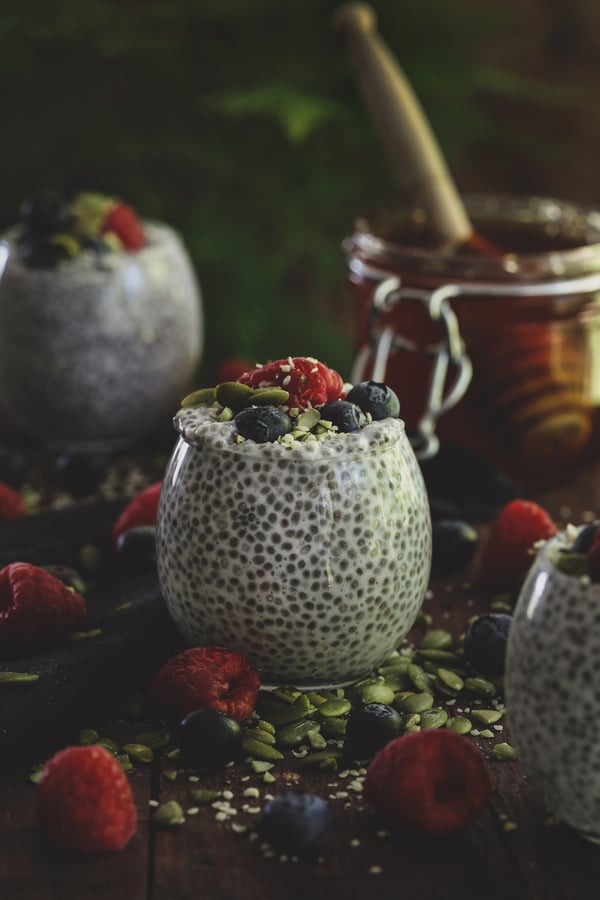
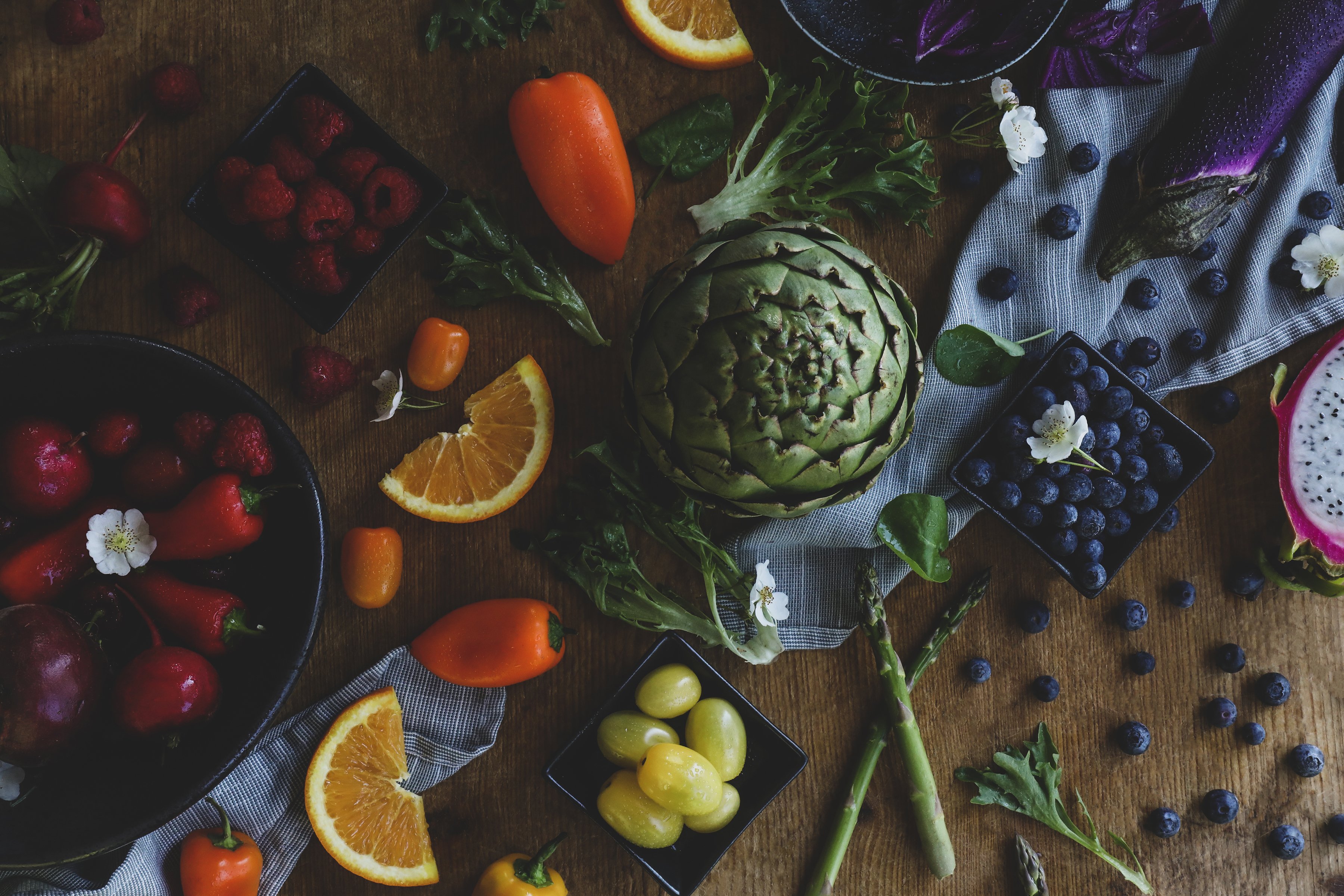
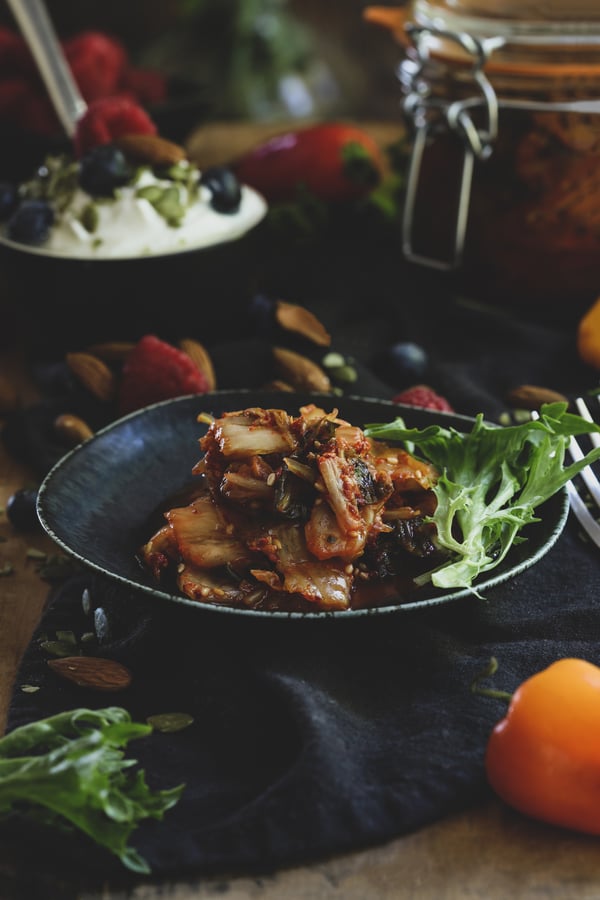
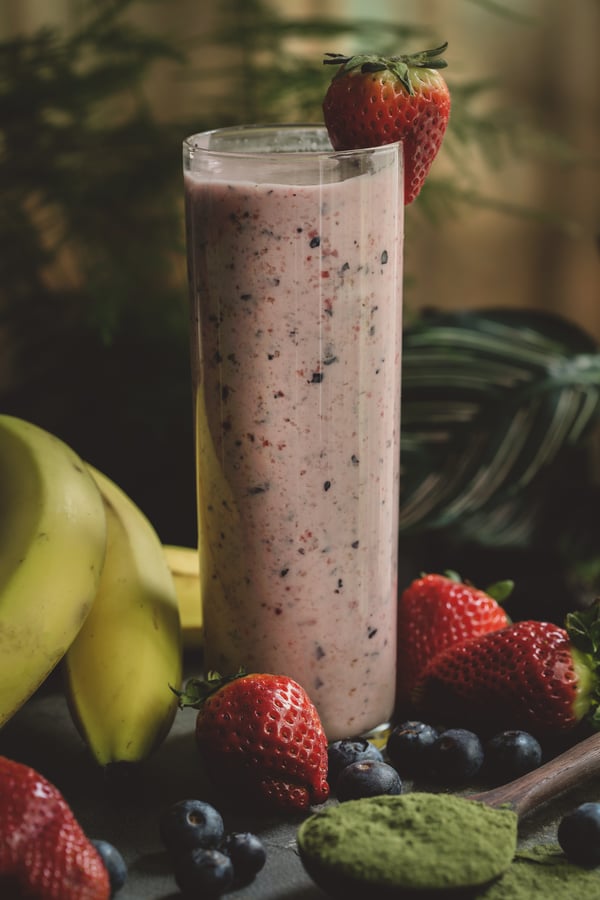
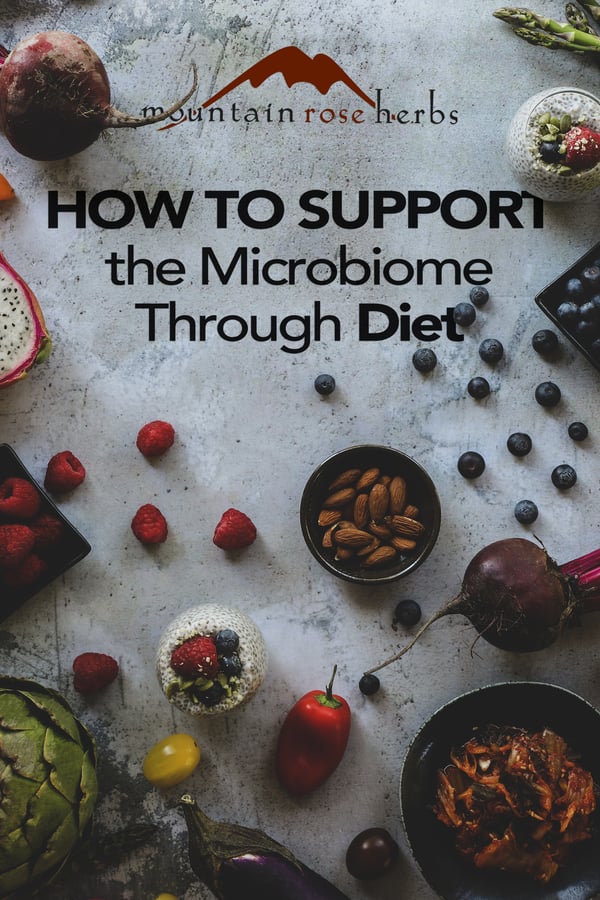
.png)








